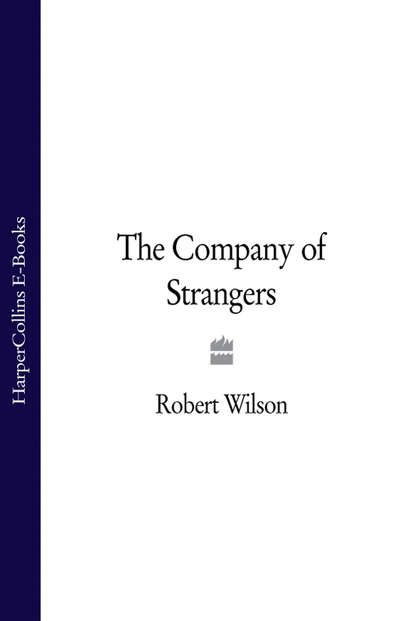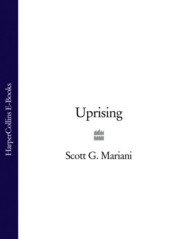По всем вопросам обращайтесь на: info@litportal.ru
(©) 2003-2024.
✖
The Company of Strangers
Автор
Год написания книги
2018
Настройки чтения
Размер шрифта
Высота строк
Поля
‘Don’t imagine for one second, Captain, that the Russians are doing nothing about…about your situation in there,’ he said, and disappeared.
No wonder the Führer was bad after Todt’s visits.
Another half-hour passed and Voss went to fetch coffee from the dining room. Speer and Todt sat on either side of a single glass of wine, which the older man sipped. The structural differences between the two men were marked. The one slumped with definite subsidence under the right foundation, the nineteenth century, Wilhelmine façade lined and cracked, the paint and masonry crumbling to scurf. The other cantilevered over at an impossible angle, his lines clean and defined, the modern Bauhaus front, dark, handsome, uncluttered and bright.
‘Captain Voss,’ said Todt, turning to him, ‘did you speak to the flight captain yet?’
‘No, sir.’
‘When you do, tell him that Herr Speer will be joining me. He came in from Dnepropetrovsk tonight.’
Voss drank his coffee and on the way back to his work he had the strange and uncomfortable sense of silent machinery at work, out of his sight and beyond his knowledge. He turned into the situation room, just as SS Colonel Bruno Weiss came out of Hitler’s apartment. Weiss was head of the SS company at Rastenburg in charge of Hitler’s security and the only thing Voss knew about him was that he didn’t like anybody except Hitler, and he had a particular dislike of intelligence officers.
‘What are you doing, Captain?’ he shouted down the corridor.
‘Just finishing these orders, sir.’
Weiss bore down on him and inspected the situation room, the scar running from his left eye to below his cheekbone livid against his pale skin.
‘What are these?’
‘Army Chief of Staff files, sir, to go back to Berlin on the Reichsminister Todt’s flight this morning. I’m about to inform the flight captain.’
Weiss nodded at the phone. Voss called the flight captain and booked Speer on to the plane as well. Weiss wrote things down in his notebook and went back to Hitler’s apartment. Minutes later he was back.
‘These files…when are they going?’ he asked.
‘They have to be at the airstrip by 07.30 hours this morning, sir.’
‘Answer the question fully, Captain.’
‘I will be taking them personally, leaving here at 07.15 hours, sir.’
‘Good,’ said Weiss. ‘I have some security files to go back to the Reichsführer’s office. They will be delivered here. I will inform the flight captain.’
Weiss left. An adjutant strode past. Minutes later he came back followed by Speer.
Voss, like Hitler (not an unconscious imitation), enjoyed working at night. He worked with the door open to hear the voices, see the men, to gain a sense of the magnetic flow – those drawn to and favoured by the Führer and those he rejected and disgraced. In the short time he’d been in Rastenburg, Voss had seen men striding down the centre of that corridor, medals, pips and epaulets flashing, to return fifteen minutes later hugging the wall, shunned even by the carpet strip in the middle. There were others, of course, who came back evangelized, something in their eyes higher than the stars, greater than love. These were the men who had ‘gone’, left the decrepit shell of their own bodies to walk an Elysium with other demigods, their ambitions fulfilled, their greatness confirmed.
Weber saw it differently, and said it with a cruder voice: ‘These guys, they’re all married with wives and families of lovely children and yet they go up there and take it up the arse every night. It’s a disgrace.’ Weber had accused Voss of it, too. Of sitting with his tongue out in the corridor, waiting for a tummy rub. It needled Voss only because it was true. In his first week, as Voss had laid maps down in a situation meeting while Zeitzler said his piece, the Führer had suddenly gripped Voss by the bicep and the touch had shot something fast and pure into his veins like morphine, strong, addictive but weakening, too.
The Wolfsschanze stilled into the early hours. Corridor traffic halted. Voss filed the orders and prepared the maps and positions for the morning conference, taking his time because he liked the feeling of working while the world was asleep. At 3.00 a.m. there was a flurry of activity from Hitler’s apartment and moments later Speer appeared at the door looking like a matinée idol. He asked Voss if he wouldn’t mind cancelling him from the Reichsminister’s flight in the morning, he was too tired after his earlier flight and his meeting with the Führer. Voss assured him of his efficiency in the matter and Speer stepped into the room. He stood over the map and brushed a hand in a great swathe over Russia, Poland, Germany, the Netherlands and France. He became conscious of Voss studying him and put his hand in his pocket. He nodded, said good night and reminded him to tell the flight captain. He didn’t want to be disturbed in the morning.
Voss made the call and went to bed for three hours. He got up just before 7.00 a.m., called a car and he and the chauffeur loaded the box files, along with a black metal trunk which had appeared in the situation room addressed in white paint through a stencil to the SS Personalhauptamt, 98–9 Wilmersdorferstrasse, Berlin-Charlottenburg. They drove to the airstrip where, to their surprise, they found Todt’s Heinkel charging down the runway. Voss could already feel the lash of Weiss’s fury. He went to the flight captain who told him they were just testing the plane under orders from Hitler’s adjutant. The plane circled twice and relanded. A sergeant with a manifest cleared the files on to the aircraft and they loaded them. Voss and the chauffeur drank a coffee in the canteen and ate bread and eggs. At 7.50 a.m. the Reichsminister’s car pulled alongside and Fritz Todt boarded the Heinkel alone.
The plane immediately taxied to the end of the runway, paused, throttled up and set off down the snow-scabbed airstrip towards the black trees and low grey cloud of another grainy military morning. It should still have been dark at this hour but the Führer insisted on keeping Berlin time at his Rastenburg headquarters.
As he left the canteen Voss was arrested by the rare sight of SS Colonel Weiss outside the Restricted Area I compound. He was in the control tower, looking green through the glass, his thick arms folded across his chest, his pale face lit by some unseen light below him.
The continuous roar of the plane’s engines changed tone and the wings tipped as it banked over the pine forest. This was unusual, too. The plane should have continued west, piercing the soft gut of the grey cloud to break through into the brilliant, uncomplicated sunshine above, instead of which it had rolled north and appeared to be coming back in to re-land.
The pilot straightened the wings of the plane and settled the aircraft into its descent. It was just reaching the beginning of the runway, no more than a hundred feet off the ground, when a spear of flame shot up from the fuselage behind the cockpit. Voss, already gaping, flinched as the roar of the explosion reached him. His driver ducked as the plane tilted and a wing clipped the ground, shearing away from the body of the plane, which thundered into the snow-covered ground and exploded with hideous violence, twice, a fraction of a second between each full fuel tank igniting.
Black smoke belched, funnelling out into the grey sky. Only the tailplane had survived the impact. Two fire engines stormed pointlessly out of their hangar, slewing on the icy ground. SS Colonel Weiss dropped his arms, jutted his chest, stretched his shoulders back and left the observation platform.
Voss grew into the iron-hard ground, his feet drawing up the numbing cold, transporting it through to the bones and organs of his body.
Chapter 3 (#ulink_d68f28e2-f8c5-5692-8fdf-cbff38489fc3)
8th February 1942, Wolfsschanze HQ, Rastenburg, East Prussia.
Voss was driven back to Restricted Area I in silence, the dead hand of a full inquiry already on his shoulder. He pieced together the ugly fragments of information in his brain and felt his mind recoil in disgust. He began to see, for the first time, how a man could shoot himself. Until then it had been a mystery to him, on hearing of someone’s suicide, how a man could bring himself to such a disastrous conclusion. He smoked hard until he was quite faint and prickling. He staggered up the path to the main building and realized on entering that the horrific news had preceded him by some minutes.
The dining room was full, but rather than being morbid with the news of the death of the most important and capable engineer in the German Reich, it was rife with the rumour of a successor. The monochrome mass of braid and band, oak leaf cluster and iron cross seethed like the bullring of the Bourse. Only one man was silent, head up, hair swept back, dark eyes shining under the thick straight eyebrows – Albert Speer. Voss blinked, sure as a camera shutter, and captured the image – a man on the brink of his destiny.
Voss took a coffee, fed himself into the knots of conversation and soon realized that anybody with anything to do with construction and transportation was in the room.
‘Speer will take the Atlantic Wall, the U-boat pens and the Occupied West. It’s already been talked about.’
‘What about the Ukraine? The Ukraine is more important now.’
‘You didn’t forget that we declared war on the United States before Christmas.’
‘No, I didn’t, and nor did Todt.’
Silence. Heads swung to Speer’s table. People were putting things to him and he was managing vague replies to their questions, but he wasn’t listening. He was coming to terms with a price. Appalled at the animal troughing around him, unwilling to accept anything that they attempted to confer on him, he was trying to justify to himself not only his presence there (for the first time and on such a tragic occasion), but something else whose nature he couldn’t quite grasp. He seemed to be coping with a strong, unpleasant smell which had reached his nostrils only.
‘He won’t give it all to him…the Führer wouldn’t do that. No experience.’
‘He’ll split Armaments and Munitions away from Construction.’
‘You wait…the Reichsmarschall will be here any moment. Then we’ll see…’
‘Where is Goering?’
‘At Romiten. Hunting.’
‘That’s only a hundred kilometres away…has anybody called him?’
‘Goering will take Armaments and Munitions into his Commission for the Four Year Plan. He’s in charge of the war economy. It fits.’
‘The only thing that fits, if you ask me, is that one’s face over there.’
‘What’s Speer doing here, anyway?’
‘He was stuck in Dnepropetrovsk. He flew in with Captain Nein last night.’
‘He fetched him?’ asked a voice, aghast.











